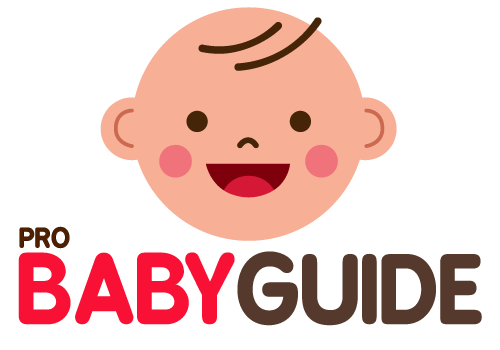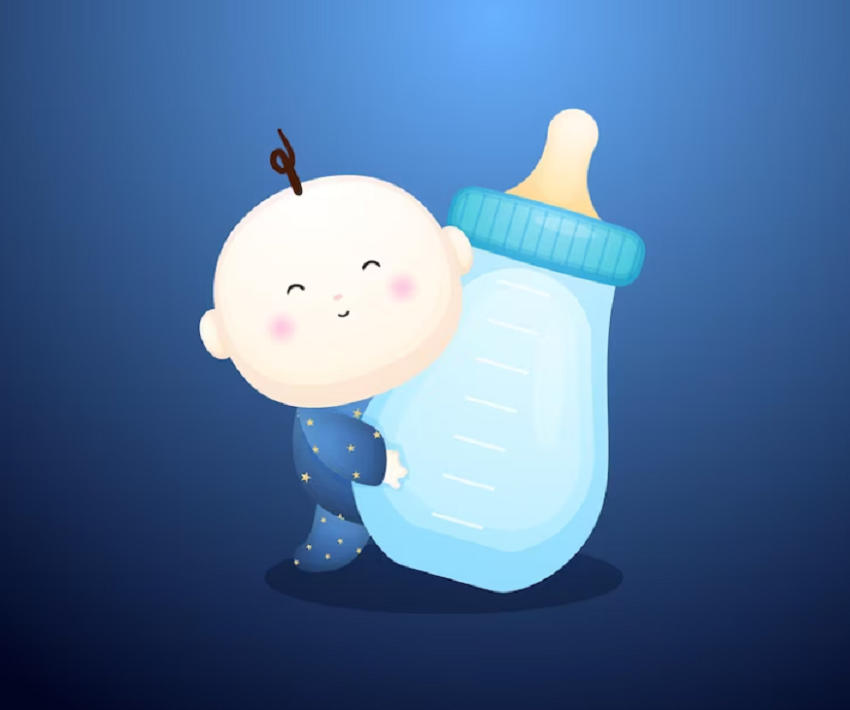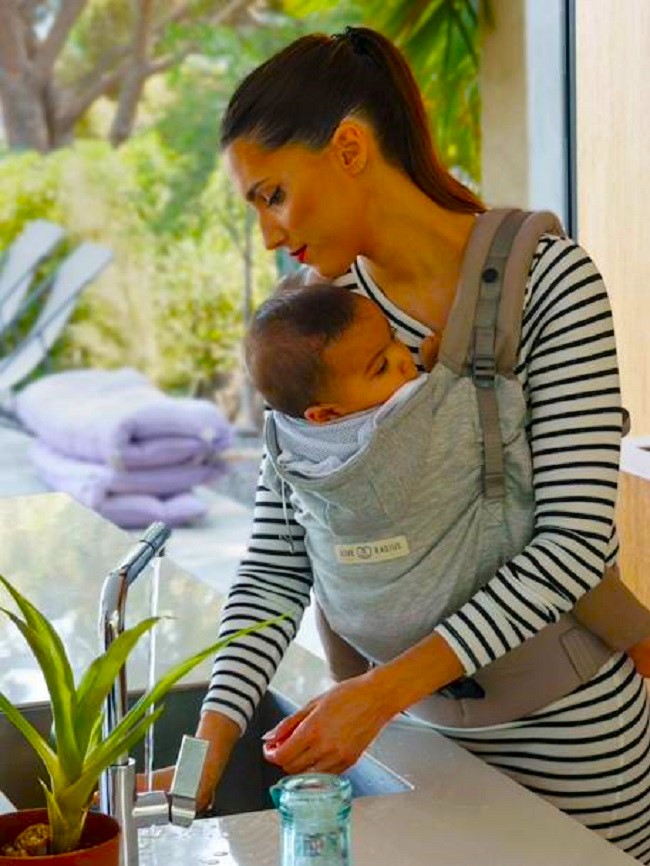As you likely know, breastfeeding is the best way to feed your baby. However, bottle-feeding your baby while they’re asleep has several risks for them. In this blog post, we’ll explain sleep feeding and the risks of bottle-feeding a baby while asleep. We’ll also provide tips on how to safely and comfortably bottle-feed your baby during sleep and advice for babies under 5 months old and over 5 months old. If you’re considering bottle-feeding your baby while asleep, read on to learn all you need!
What is sleep feeding?
Many mothers choose to sleep breastfeed their babies, believing it has many benefits. But before doing so, it’s important to understand all the risks and benefits. Sleep breastfeeding is when a mother breastfeeds their baby while they are asleep. However, there are also risks associated with sleep feeding – these include reduced risk of Sudden Infant Death Syndrome (SIDS), breastfeeding can be restricted if the infant wakes up frequently during the night or feedings throughout the day due to gas or colic symptoms, and the baby may have a higher IQ. Before deciding to sleep breastfed, discussing the risks and benefits with your healthcare provider is important.
What are the risks of bottle-feeding a baby while they’re asleep?
There are several risks associated with bottle-feeding a baby while they’re asleep. These include sleep apnea, which can increase the baby’s risk for breathing and other health issues. If you’re considering bottle-feeding your baby while sleeping, you must talk to your pediatrician first. They can give you the tools you need to minimize risks and help you follow all the safety guidelines provided. Make sure you follow all the instructions carefully and be mindful of the time of night you’re bottle-feeding your baby. Doing so will help reduce the risk of accidents and ensure that your baby gets the best possible sleep.
What to do if your baby starts choking on milk while sleeping
Breastfeeding while sleeping is the best option for babies, but there are risks associated with bottle-feeding babies while sleeping. If your baby starts to choke on milk while sleeping, do not try to clear their throat. Instead, call 911 and perform the Heimlich maneuver immediately. Choking can be fatal and babies younger than six months old cannot cough effectively, so they may need medical attention instead. So, be aware of the risks and make the best decision for your baby – breastfeeding while sleeping is the safest option!
Tips for safe, comfortable bottle-feeding during sleep
There’s no doubt that bottle feeding is the most popular feeding method for newborns. But is it safe? The short answer is yes, it is safe to bottle-feed your baby while sleeping, as long as you take a few precautions.
First and foremost, only use bottles made from BPA-free materials. This is to avoid any potential health risks.
Second, ensure you have good hygiene measures in place – wash your hands thoroughly before and after feeding.
Third, carefully weigh the pros and cons of bottle-feeding while asleep before making a decision.
Fourth, you should take a few precautions to ensure the baby is safe during sleep. For example, avoid using hot liquids or foods with spices, as these can be problematic for infants.
Fifth, use a standard nipple shape and make sure the bottle is securely fastened to the bedpost. Sixth, monitor the baby closely during sleep to ensure they are comfortable and safe.
The benefits of breast milk over formula feeding
There are many benefits to breastfeeding over formula feeding, and the risks of bottle feeding a baby while sleeping are significantly higher than breastfeeding. In this blog post, we will explore the risks of bottle feeding and explain why breast milk is the best food for a baby. We will also discuss the benefits of breastfeeding and why it should be the primary food source for newborns. Finally, we will discuss the risks of formula feeding and why it is not a good choice for newborns.
The risks of bottle-feeding your baby in any position
There are many benefits to breastfeeding, but some risks are associated with bottle-feeding a baby in any position. The most important thing is to ensure you are safe and know the risks involved before doing anything. For example, bottle-feeding while sleeping increases the risk of SIDS (sudden infant death syndrome).
Breastfed babies are also less likely to become obese, and there is no evidence that bottle feeding leads to obesity in children. Additionally, there is a greater chance of traumatic injuries if your baby falls off the bed during bottle-feeding. As a mom, weigh the pros and cons of bottle-feeding your baby and ensure you are fully informed of the risks before making a decision.
Most common new parent worries
When the baby is sleeping, it’s tempting to bottle feed them to help them sleep through the night. However, a few risks are associated with bottle-feeding babies while they sleep. One of the most common is Sudden Infant Death Syndrome (SIDS). If you’re weighing the pros and cons of bottle-feeding babies while they sleep, it’s important to know about the risks to make an informed decision. Other risks associated with bottle feeding babies while they sleep are breastfed babies waking up during the night to feed, babies getting sick from the milk, and babies becoming overweight from the milk. If you bottle feed a baby, follow safety guidelines closely and talk to your doctor about them first!
Will the baby cry all night long if I feed them while sleeping?
There are many myths about sleep and baby feeding. One of the most widely accepted is that bottle-fed babies will cry all night long if you sleep with them. It is better to let babies cry for a bit to feed them when they wake up naturally. Sleeping with a baby also increases the risk of family violence and child abuse.
What are the risks of bottle feeding a baby while they’re asleep?
There are several risks associated with bottle-feeding babies while they’re asleep. One of the most serious is that a baby can choke on their milk, which could lead to death. Bottle feeding during the night also disrupts a baby’s sleep patterns, which may cause behavioral issues in the future. If you bottle feed your baby while they’re sleeping, follow safety guidelines carefully and consult a health professional first. This will reduce the chances of Sudden Infant Death Syndrome (SIDS).
Are there any benefits to bottle feeding a baby while they’re asleep?
There are many benefits to bottle-feeding babies while they’re asleep. One of the most important is that it can reduce the risk of SIDS (Sudden Infant Death Syndrome). Bottle feeding babies while they’re sleeping also helps teach them proper breastfeeding habits. In addition, it is a good way for you to bond with your baby and get some sleep at the same time. Always consult your doctor before starting this type of feeding schedule, as there could be other reasons why bottle-feeding might not be advisable in certain cases.
Is pumping breast milk enough?
Whether breast milk is enough for a baby depends on the individual situation and should be weighed carefully. Bottle feeding may be more convenient, but it comes with risks such as sleep deprivation and SIDS (Sudden Infant Death Syndrome). Sleeping with a baby near you increases the risk of this deadly condition. Pumping breast milk during the day is better for both mother and child’s development – not only because there are fewer infections but also because babies learn better when they frequently feed throughout the day. Weighing all pros and cons before deciding is advisable so parents can make an informed choice about what will best suit their baby’s needs.
Is it unsafe to leave my infant unsupervised while I shower or nap?
Several risks are associated with leaving an infant unsupervised, the most notable of which is SIDS (sudden infant death syndrome). Bottle-feeding offers some protection as it gives you constant eye contact and physical contact. However, leaving your baby unsupervised, even for short periods, is not safe. It’s recommended that you never leave an infant alone in a room with sharp objects or fireplaces and always keep him/her properly supervised while breastfeeding. Furthermore, ensure to follow the safety guidelines advised by the manufacturer when feeding your baby through a bottle to minimize risks.
When to start dream feeding your baby
Breastfeeding has many benefits, but they’re not guaranteed if you bottle feed while sleeping. Bottle feeding is not a replacement for breastfeeding and should not be the only way your baby gets their milk. It’s important to weigh the pros and cons of sleep bottle feeding before starting this feeding routine with your baby. Remember that bottle feeding is not a healthy sleep habit for babies and can cause sleep problems, weight gain, and tooth decay in infants. It’s also important to remember that bottle feeding can provide some nutritional benefits, but it’s also associated with risks. It’s important to talk to your doctor before starting sleep bottle feeding to ensure it’s the best feeding option for your baby.
When to stop dream feeding
It can be tempting to bottle feed your baby while they’re sleeping, but there are risks involved. The risk of SIDS (Sudden Infant Death Syndrome) is high when a baby sleeps near an adult. Additionally, you run the risk of choke and aspiration if your child feeds from a bottle while sleeping. If you choose to continue dream feeding, keep all other toys and objects out of reach from your infant so they can’t accidentally eat them while dreaming! Finally, it’s important to note that you shouldn’t bottle feed your baby while sleeping – there are risks involved. For the safety and well-being of both you and your baby, it’s always best to consult a healthcare professional before making any decisions.
Feeding babies under 5 months to sleep
There are many benefits to breastfeeding babies, but there are also risks. One such risk is SIDS (sudden infant death syndrome), the leading cause of death in babies under 1-year-old. Many parents choose to feed their babies while they sleep to reduce the risk of SIDS. This is a safe practice as long as the baby is safe and the caregiver is aware of the risks involved. Babies must sleep for at least 12 hours daily to ensure their health and well-being. If you’re breastfeeding and want to feed your baby while you sleep, it’s recommended that you do so in a safe and secure environment.
Feeding babies over 5 months to sleep – continued night waking
There are a few risks associated with bottle-feeding babies while they sleep. The first is the risk of SIDS (Sudden Infant Death Syndrome). Bottle-feeding babies over 5 months old can increase this risk dramatically as the baby will wake up multiple times a night to feed. This can lead to babies developing sleep problems and becoming more susceptible to SIDS.
Additionally, bottle-feeding babies during the night can cause the baby to wake up frequently, which can also be a risk factor for SIDS. The American Academy of Pediatrics (AAP) recommends that babies are exclusively breastfed for at least six months and then gradually introduced to solids by around four or five months old. In the meantime, breastfed babies who are bottle-fed should only be given low-fat formula without added sugars or artificial colors. So there you have it – the safest way to bottle-feed babies while they sleep!
Conclusion
Bottle feeding a baby while asleep has been linked with several risks, including sleep-related choking. Knowing the risks and taking precautions for safe sleep feedings can help your baby sleep safely and enjoy breastfeeding even longer.




